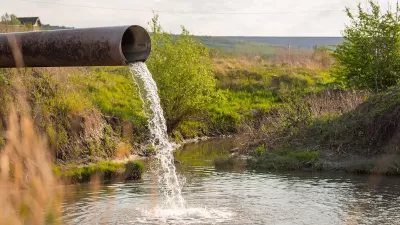The pressures on water supply are growing at the same time that water quality is becoming more expensive and more difficult to maintain. A recent article examines the challenges in the farm state of Nebraska.
“The costs of managing drinking-water quality are substantial and rising. The federal Environmental Protection Agency estimated last year that the nation may need to spend upwards of $380 billion in capital costs alone to upgrade its drinking water systems,” reports Daniel Snow and Peter Calow.
The article sites the example of Nebraska (a welcome break from the daunting and persistent drought narratives of California and Texas) in exemplifying the challenges to managing water supplies: “For Nebraska, there are three main pressures on water quality that are likely to resonate across the United States, especially in farm states: the ever-increasing intensification of agriculture in response to increasing demands for food; the increasing frequency of extreme weather events as climate changes; and an aging infrastructure of drinking-water and sewage-treatment systems.”
Snow and Calow also explain the danger, and who is likely to suffer the consequences, of shoe-horning simplistic solutions to the problem: “If treatment alone is viewed as the only solution, then costs are unfairly passed on to communities not responsible for the contamination. These costs can be particularly serious for small rural communities, where the technology required to remove both uranium and nitrate could cost as much as $5 million and require substantially increased operational costs.”
FULL STORY: The Rising Pressures on the Water We Drink

Planetizen Federal Action Tracker
A weekly monitor of how Trump’s orders and actions are impacting planners and planning in America.

Maui's Vacation Rental Debate Turns Ugly
Verbal attacks, misinformation campaigns and fistfights plague a high-stakes debate to convert thousands of vacation rentals into long-term housing.

Restaurant Patios Were a Pandemic Win — Why Were They so Hard to Keep?
Social distancing requirements and changes in travel patterns prompted cities to pilot new uses for street and sidewalk space. Then it got complicated.

In California Battle of Housing vs. Environment, Housing Just Won
A new state law significantly limits the power of CEQA, an environmental review law that served as a powerful tool for blocking new development.

Boulder Eliminates Parking Minimums Citywide
Officials estimate the cost of building a single underground parking space at up to $100,000.

Orange County, Florida Adopts Largest US “Sprawl Repair” Code
The ‘Orange Code’ seeks to rectify decades of sprawl-inducing, car-oriented development.
Urban Design for Planners 1: Software Tools
This six-course series explores essential urban design concepts using open source software and equips planners with the tools they need to participate fully in the urban design process.
Planning for Universal Design
Learn the tools for implementing Universal Design in planning regulations.
Heyer Gruel & Associates PA
JM Goldson LLC
Custer County Colorado
City of Camden Redevelopment Agency
City of Astoria
Transportation Research & Education Center (TREC) at Portland State University
Jefferson Parish Government
Camden Redevelopment Agency
City of Claremont





























